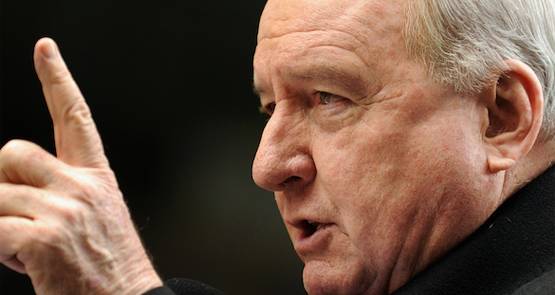On December 22 last year, Fairfax Media and John Singleton’s Macquarie Radio announced they had signed a merger agreement to create a national talk radio network.
Given the summer media recess, there hasn’t been a lot of analysis about the deal. Fairfax commentators are naturally reluctant to publicly question their board’s decision and, given the ideological associations between News Corp and Macquarie, it is not surprising the response from Holt Street has also been relatively benign.
News Corp’s Stephen Bartholomeusz explored some of the sensitivities and The Australian’s media writer Darren Davidson was generally positive. Michael Smith, who Fairfax exited from 2UE after the Gillard-AWU blow-ups of 2011, came closest to having a go with this blogpost.
The key governance and management issues of the merger have been resolved by constructing a board with two nominees from each entity and one independent director acceptable to both sides.
The only confirmed board nominee is Russell Tate, 66, a Singleton advertising loyalist who will remain as executive chairman of Macquarie Radio for 12 months only. Fairfax’s current radio boss, Adam Lang, will be chief operating officer and presumably replaces Tate as CEO in 2016 if he can win the confidence of key 2GB presenters and rain-makers Alan Jones and Ray Hadley.
The Macquarie Radio board currently comprises five directors, so only one of these four other directors will survive the deal once it is completed in April after shareholder approval at an EGM:
Max Donnelly, consultant to Ferrier Hodgson, former Macquarie Radio chairman and Alan Bond bankruptcy trustee.
Maureen Plasvic, former CEO of Seven Network who has served since 2005.
Jack Singleton, one of John’s children from his six marriages.
Kate Thompson, chief operating officer of the boutique corporate advisory firm owned by Mark Carnegie, who is currently the second largest Macquarie Radio shareholder with a 15.6% stake worth about $16 million.
Alternatively, John Singleton, 73, could take the second seat for himself to directly represent his diluted 32% stake in the combined entity once Fairfax has been issued with 54.5% of the expanded shares on issue.
In early December, Macquarie Radio announced that Alan Jones had signed a new contract that maintained his current hours presenting Breakfast on 2GB through until June 2017, when he will be 77. 2GB’s combustible morning presenter, Ray Hadley, 60, has a contract that runs until 2020. Jones and Hadley are happy dealing with Singleton and Tate, but Tate is thought to be fed up with managing all the squabbling around their egos and would enjoy leaving for a quieter life in early 2015.
Former Austereo CEO Michael Anderson is an independent non-executive director of Fairfax and would make an obvious choice to represent the company on the reconstituted Macquarie Radio board. The second nominee is not so obvious but it could well be Adam Lang himself, another Austereo refugee. Such a scenario would allow Singleton to claim he’s got the merger over the line without those Fairfax dunderheads he’s previously slammed, Roger Corbett and Greg Hywood, sitting on his board.
The hard part of the merger will be securing those much-touted $10 million in synergies without losing the vital “local” feel that stations such as 3AW in Melbourne, 6PR in Perth and 4BC in Brisbane need to prosper. There are also a lot of big egos to manage. Will Ross Stevenson, the brilliant lead act in 3AW’s Breakfast double header for the past 25 years, invite Alan Jones or Ray Hadley on for a chat each morning?
And do Melbournians want to hear 2GB’s existing evening presenter Steve Price, who turns 60 next week, talking with Andrew Bolt each night? Should Fairfax allow such an inflammatory News Corp name like Bolt to be promoted on a radio network it controls?
There’s also the small matter of what Fairfax should do with its existing low-rating Sydney talk-station 2UE, which used to dominate the ratings until Alan Jones defected to 2GB in 2002.
The economic logic of the merger makes sense and national advertisers will no doubt embrace the concept. However, more media jobs will be lost and Fairfax will have to try and protect its reputation for balance, quality and progressive journalism while effectively being in charge of the ranting old right-wing shock jocks in the Singleton stable. That’s no easy task.









Fairfax has Neil Mitchell as a morning radio presenter, who is sort of 2 bob each way but mostly right wing, so their radio and print agendas don’t really match up anyway.
Fairfax still has a reputation for balance, quality and progressive journalism? Compared to News Corpse maybe, but that is a very low bar to clear.